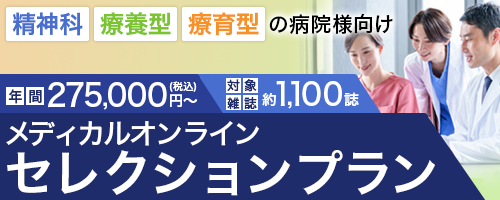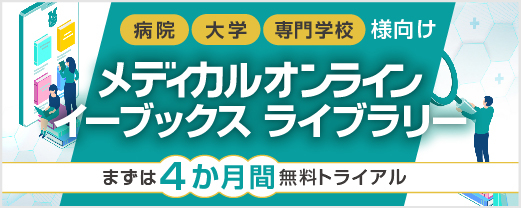アブストラクト
| Title | 第8回 ADHD (後編) 治療のポイント, 治療薬の特徴 |
|---|---|
| Subtitle | 連載 児童精神科医が伝えたい 子どものメンタルヘルス |
| Authors | 宇佐美政英 |
| Authors (kana) | |
| Organization | 国立国際医療研究センター国府台病院子どものこころ総合診療センター長 / 児童精神科 診療科長 |
| Journal | 月刊薬事 |
| Volume | 62 |
| Number | 11 |
| Page | 2213-2219 |
| Year/Month | 2020 / 8 |
| Article | 報告 |
| Publisher | じほう |
| Abstract | 「治療のはじめに大事なこと」「(1) 子どもにどんな声をかけるか」前回は, 注意欠如・多動症(attention-deficit hyperactivity disorder; ADHD)の特徴や診断基準, 近年注目されているlate-onset ADHDについて解説しました. 今回は後編として, 治療について述べたいと思います. ADHDの治療では, ADHD児が伸び伸びと成長していくために, 周りの人に病気をよく理解してもらうことが一番大切です. 症状に対して「どうしてじっとしていられないの」などと叱られたり怒られたりしているうちに, 「どうせ怒られる」, 「また失敗するからやらない」と考えるようになり, 萎縮して自己評価が低い子どもになってしまうのです. そこで, どのような声かけをすればいいのでしょうか. 外来で診療していると, 親から「ほめるところはありません」と言われてしまうことがあります. |
| Practice | 薬学 |
| Keywords |
- 全文ダウンロード: 従量制、基本料金制の方共に803円(税込) です。
参考文献
- 1) Galera C, et al:Childhood attention problems and socio-economic status in adulthood:18-Year follow-up. Br J Psychiatry, 201:20-25, 2012
- 2) Hayden J, et al:ADHD in children:a path to free medicines. Ir J Med Sci, 185:171-175, 2016
- 3) Matza LS, et al:A review of the economic burden of ADHD. Cost Eff Resour Alloc, 3:5, 2005
- 4) Singh I:Beyond polemics:Science and ethics of ADHD. Nat Rev Neurosci, 9:957-964, 2008
- 5) Huss M, et al:Guanfacine Extended Release:A New Pharmacological Treatment Option in Europe. Clin Drug Investig, 36:1-25, 2016
残りの13件を表示する
- 6) Charach A, et al:Childhood attention-deficit/hyperactivity disorder and future substance use disorders:Comparative meta-analyses. J Am Acad Child Adolesc Psychiatry, 50:9-21, 2011
- 7) Lee SS, et al:Prospective association of childhood attention-deficit/hyperactivity disorder (ADHD) and substance use and abuse/dependence:A meta-analytic review. Clin Psychol Rev, 31:328-341, 2011
- 8) Pliszka S; AACAP Work Group on Quality Issues:Practice parameter for the assessment and treatment of children and adolescents with attention-deficit/hyperactivity disorder. J Am Acad Child Adolesc Psychiatry, 46:894-921, 2007
- 9) Wolraich M, et al:Clinical practice guideline for the diagnosis, evaluation, and treatment of attention-deficit/hyperactivity disorder in children and adolescents. Pediatrics, 128:1007-1022, 2011
- 10) Dalsgaard S, et al:Mortality in children, adolescents, and adults with attention deficit hyperactivity disorder:A nationwide cohort study. Lancet, 385:2190-2196, 2015
- 11) Molina BS, et al:Adolescent substance use in the multimodal treatment study of attention-deficit/hyperactivity disorder (ADHD) (MTA) as a function of childhood ADHD, random assignment to childhood treatments, and subsequent med-ication. J Am Acad Child Adolesc Psychiatry, 52:250-263, 2013
- 12) Goldstein BI:Do stimulants prevent substance use and misuse among youth with attention-deficit/hyperactivity disorder? the answer is still maybe. J Am Acad Child Adolesc Psychiatry, 52:225-227, 2013
- 13) Shaw P, et al:Quantifying the benefits and risks of methylphenidate as treatment for childhood attention-deficit/hyperactivity disorder. JAMA, 315:1953-1955, 2016
- 14) Chang Z, et al:Stimulant ADHD medication and risk for substance abuse. J Child Psychol Psychiatry, 55:878-885, 2014
- 15) Groenman AP, et al:Stimulant treatment for attention-deficit hyperactivity disorder and risk of developing substance use disorder. Br J Psychiatry, 203:112-119, 2013
- 16) McCabe SE, et al:Age of Onset, Duration, and Type of Medication Therapy for Attention-Deficit/Hyperactivity Disorder and Substance Use During Adolescence:A Multi-Cohort National Study. J Am Acad Child Adolesc Psychiatry, 55:479-486, 2016
- 17) Wilens TE, et al:Does stimulant therapy of attention-deficit/hyperactivity disorder beget later substance abuse? A meta-analytic review of the literature. Pediatrics, 111:179-185, 2003
- 18) 厚生労働省「メチルフェニデート塩酸塩製剤(コンサータ錠18mg, 同錠27mg及び同錠36mg)の使用にあたっての留意事項について」(令和元年9月4日薬生総発0904第1号)



